HR BYTES NEWSLETTER
January 2024

Unveil a wealth of pioneering HR practices in our January newsletter, igniting a year of transformation. Dive into innovative trends, tools, and approaches that promise to redefine your HR journey. Navigate the landscape of emerging trends and forecasts that will empower HR leaders to instigate positive change and cultivate growth throughout 2024.

EU Reaches Deal on Regulation of AI
European Union (EU) policymakers reached a significant deal on the proposed AI Act, featuring strict penalties for violations. The deal, expected to pass by May 2024, introduces a risk-based approach, emphasizing applications with potential harm, like those in hiring and education. Violating companies may face fines of up to 7% of global revenue. Notably, the EU law bans certain AI uses, including bulk facial image scraping and most emotion recognition systems in workplaces and schools. This groundbreaking legislation is set to shape AI regulations in the EU and serve as a global model for other regulators. In contrast, the U.S. is exploring a more lenient approach, focusing on incentivizing AI development domestically.

NY Times Missed These 12 Trailblazers: Meet the Women Transforming AI
The New York Times recently spotlighted 12 key figures in the AI world (see original post), but there's a catch – not a single woman made the list. This omission has stirred some well-deserved attention, emphasizing the need to recognize the significant contributions of women in the AI field. In response, we've curated a counter-list, showcasing 12 remarkable women who are influential leaders in the AI space. This isn't just about pointing out an oversight; it's a call for discussions on fair recognition in tech. While this list is symbolic and represents only a fraction of the exceptional women in AI, the goal is to foster a dialogue on why women's contributions often receive less visibility in the AI and Tech space.


The State of Global Workplace Culture in 2023
The State of Global Workplace Culture in 2023 report dives into how workplace culture still matters a lot to employees worldwide, even after recent financial challenges. In a study involving over 11,000 employees from 15 countries, the findings show that positive workplace culture remains a key factor in keeping employees satisfied and committed to their organizations. The report suggests that especially in times when financial benefits might be challenging, focusing on a positive culture is a smart investment for employers to retain and attract talent, giving them a competitive edge.

Who’s Who Behind the Dawn of the Modern Artificial Intelligence Movement
Embark on a journey through the pioneers shaping the dawn of the modern Artificial Intelligence (AI) movement. Long before chatbots seized the spotlight, a collective effort spanning over a decade involved researchers, tech executives, and venture capitalists dedicated to fuelling A.I. Larry Page, Demis Hassabis, and Elon Musk stands among the key figures who have significantly contributed to the development of modern artificial intelligence. While A.I. gained widespread attention recently, these visionaries have been driving advancements that mimic human brain functions, capturing the attention of Silicon Valley and tech enthusiasts for more than ten years.
Season of Giving Contest through January 31, 2024!
three winners of the drawing Will Get to PICK A CHARITY to which HR GECKOS will MAKE A donatION!
The rules are simple!
Step 1: Rate and review the HR Bytes Podcast on Spotify. Of course, we appreciate 5-star reviews, but they aren't required.
Step 2: Take a screenshot of your review and send it to us via email: [info [at] hrgeckos dot com].
Bonus Step 3: Share your review or a link to our show on your social networks. We hope to see you win big!

The winners will be announced in the February 2024 Newsletter!
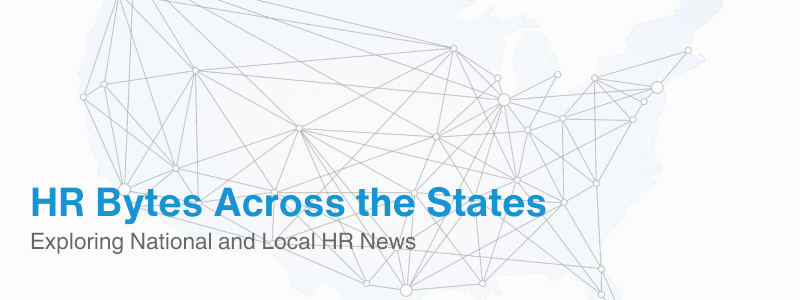
The State of State AI Laws: 2023
States in the U.S. are making a lot of new laws about artificial intelligence (AI). Ten states are adding AI rules to privacy laws, letting people say no to being profiled by AI. New York City is making waves with a unique law for AI use in hiring. Montana, Indiana, Oregon, Tennessee, and Texas are joining others in passing laws that give people the right to say no to automated profiling and require checks if AI decisions could be harmful. Other states are proposing laws covering AI in areas like employment, healthcare, insurance, and government use. There's a mix of concerns about bias, discrimination, and transparency. This marks a big moment in how states are dealing with AI and trying to balance progress with people's safety.
New York Times sues Microsoft, ChatGPT maker OpenAI over copyright infringement
The New York Times is suing Microsoft and OpenAI, the creators of ChatGPT, for using its articles without permission to train their artificial intelligence system. The Times wants billions of dollars in damages, claiming that Microsoft and OpenAI are making money by unlawfully using its valuable content. Microsoft and OpenAI are being accused of a business model based on stealing content, impacting The Times' ability to earn money from its work. This legal action reflects a broader trend where media organizations are seeking compensation for the use of their content in training advanced AI models.
2.4 million older workers may retire early due to technological change
Over 2.4 million US workers aged 50 and above are considering early retirement due to challenges in keeping up with modern workplace skills, according to a Multiverse survey. This "silver tsunami" poses risks of labor shortages and economic impact. Urgent measures, including enhanced retention strategies and focused reskilling efforts, are recommended to address this issue. Digital transformation and AI adoption are identified as key challenges. The survey underscores the importance of offering training opportunities, with many respondents willing to reconsider retirement if provided with such learning options. Multiverse surveyed to highlight the pressing concerns of skills gaps and early retirements in the workforce.

Understanding New York City’s Height and Weight Discrimination Law
A new rule in New York City says people cannot be treated unfairly because of their height or weight. This applies to things like getting a job, finding a place to live, or using public places. Employers can't say no to someone or treat them badly just because of their height or weight. There are some exceptions, like if a specific job requires a certain height or weight, but the main goal is to ensure everyone is treated fairly, regardless of their size.

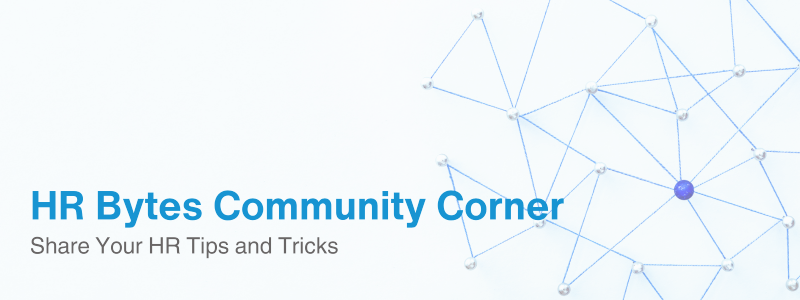
As we navigate the intricate landscape of HR in 2024, let's equip ourselves with transformative tips and tricks to overcome challenges and foster a thriving workplace. Here's your guide to addressing key concerns and unlocking new possibilities:
Embrace Digital Transformation:
As we step into 2024, the digital transformation of HR processes is more crucial than ever. Invest in user-friendly HR software and tools to streamline workflows, enhance employee experiences, and keep pace with technological advancements. Embrace automation for routine tasks, allowing HR professionals to focus on strategic initiatives.
Prioritize Employee Well-Being:
The future of HR revolves around holistic employee well-being. Implement well-being programs that encompass physical, mental, and social aspects. Leverage technology for employee assistance programs (EAPs) and wellness apps, fostering a supportive workplace culture that values the health and happiness of your team.
Stay Ahead of Future Skills:
In 2024, identify the skills your workforce will need in the future. Establish continuous learning programs, encourage upskilling and reskilling initiatives, and provide resources for employees to stay updated on industry trends. This proactive approach ensures your team remains adaptable and ready for evolving job requirements. Explore the HR Bytes Newsletter for work tech news and insights.
Enhance Remote Work Strategies:
Remote work is here to stay. Strengthen your remote work policies, invest in collaboration tools, and foster a virtual culture that promotes communication and engagement. Offer flexible work arrangements, acknowledge the diverse needs of your workforce, and consider a hybrid model that combines in-office and remote work.
Implement Inclusive HR Practices:
Diversity, equity, and inclusion should be at the forefront of HR strategies. Review and update hiring practices, promote diversity in leadership, and create a culture of belonging. Utilize technology to identify and eliminate biases in recruitment processes, ensuring a fair and inclusive workplace for everyone.
Implement Inclusive HR Practices:
Diversity, equity, and inclusion should be at the forefront of HR strategies. Review and update hiring practices, promote diversity in leadership, and create a culture of belonging. Utilize technology to identify and eliminate biases in recruitment processes, ensuring a fair and inclusive workplace for everyone.
Cultivate a Future-Ready Leadership Pipeline:
Invest in leadership development programs to cultivate a pipeline of future-ready leaders. Identify high-potential employees, offer leadership training, and create mentorship opportunities.
Embrace AI for HR Efficiency:
Artificial intelligence (AI) can revolutionize HR functions. Explore AI-driven tools for automating HR workflow processes, benefits administration, offboarding, onboarding, and employee engagement. By automating repetitive tasks, HR professionals can dedicate more time to strategic activities, fostering innovation and driving organizational success. Start a free trial (no credit card required) and learn how HR Geckos can help you.
Adopt Agile HR Practices:
In a dynamic business environment, agility is key. Implement agile HR practices to respond swiftly to changes, whether in organizational structure, project management, or employee needs. This flexibility ensures that HR processes remain adaptive and aligned with the ever-evolving demands of the workplace.
Incorporate these strategies into your HR toolkit. Each challenge is an opportunity, and every solution is a step towards creating a workplace that not only survives but thrives. Here’s to HR excellence in 2024!
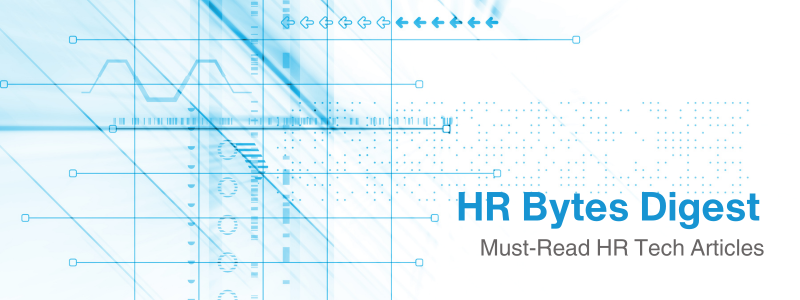
Must-Have Tech Competencies for HR Professionals
In the dynamic realm of HR, mastering essential tech competencies is imperative. Data literacy, crucial for understanding and communicating data, is pivotal in dealing with workforce analytics, talent management systems, and generative AI tools. Social media proficiency goes beyond posting, requiring strategic use and digital advertising know-how. Remote work necessitates tech skills in policy strengthening, collaboration tools, and flexibility. Data privacy understanding is critical in handling sensitive employee information. Organizations seek tech-savvy HR leaders, emphasizing successful tech implementations. Recruitment focuses on assessing candidates for real-world tech competencies. To bridge skills gaps, upskilling, identifying adjacent skills, and promoting cross-functional mobility are explored. Forward-thinking organizations embrace automation, training employees in user experience, design, and project management.
What will 2024 hold for HR?
In 2024, HR is set to undergo significant changes. There will be a greater emphasis on proving the value of HR technologies, addressing challenges from remote work policies, and increasing investment in employee health and economic well-being. One key area to watch is the shift towards skills-based approaches in recruiting, training, and career planning, as organizations recognize the importance of skills in the evolving work landscape.
The rise of artificial intelligence (AI) will play a crucial role, transforming job requirements and leading to increased adoption of skills-focused processes and technologies. As AI-driven automation becomes more prevalent, the skills needed for various jobs will change. In 2024, HR leaders will focus on creating a more aligned, employee-focused, and effective performance management system. The increased adoption of skills-based approaches will involve using technology to support this evolution. Skills will become a significant currency in the future of work, prompting organizations to move towards skills-based recruiting and training rather than job-based approaches.

Almost half of tech executives say their organizations aren't ready for AI or other advanced initiatives
Many tech executives express concerns that their organizations are not ready for advanced initiatives like artificial intelligence (AI), citing potential issues with outdated or inefficient processes. While 81% of business leaders believe IT adequately supports business needs, 68% fear suboptimal processes may hinder successful AI implementation. The survey covering 1,217 senior business leaders indicates that optimizing IT processes is crucial for embracing emerging technologies. Although 55% of IT processes are considered optimal, challenges such as lack of visibility (78%) and complexity (56%) persist, impacting productivity and efficiency. Well-designed IT processes are seen as drivers for revenue growth, cost reduction, and greater flexibility.
What the Blueprint for an AI Bill of Rights Means for Workers
This piece discusses the growth of Artificial Intelligence (AI) in workplaces and the challenges it brings, such as potential biases and increased monitoring. It highlights the government's Blueprint for an AI Bill of Rights, which aims to protect workers by ensuring safe and fair AI systems. The blog emphasizes concerns about worker well-being and privacy, especially in the context of remote work. It mentions government initiatives to address these issues and stresses the importance of businesses adopting AI responsibly while including worker input in the process.

5 Forces That Will Drive the Adoption of GenAI
Generative AI (GenAI) adoption is driven by five key forces. Board and CEO Expectations shape strategies through top-down leadership pressure. Customer Expectations, despite low societal expectations, fuel investment based on comfort in specific interactions. Employee Expectations, and anticipating job impact, highlight the need for HR support. Regulatory Expectations stress legal and ethical considerations, requiring collaboration between HR and legal departments. Lastly, Investor Expectations focus on financial rewards for companies leveraging AI. These forces collectively guide GenAI adoption, encompassing organizational, societal, workforce, regulatory, and financial aspects. Understanding and navigating them is crucial for successful integration into business operations.

2024’s Key Opportunities: AI, Flexibility, Wellbeing & Personalization
Artificial Intelligence (AI), Flexibility, Wellbeing, and Personalization. Embracing these trends can set organizations apart, leading to better performance and innovation. The impact of AI is compared to the transformative period of the Internet, emphasizing its integration into daily work. Flexibility, especially in hybrid work arrangements, is crucial, and combining it with accountability is key to cultural success. Wellbeing is identified as a priority due to increased stress, with a focus on creating a supportive and inclusive workplace. Personalization, enabled by technology, allows tailoring work conditions to individual needs, fostering a culture that values every person's contribution. Successful organizations will prioritize a human-centric culture to adapt, grow, and thrive in 2024.
How Artificial Intelligence Affects Workers with Disabilities: A New Toolkit for Businesses
The impact of Artificial Intelligence (AI) on workers with disabilities and introduces the AI & Disability Inclusion Toolkit designed to address associated risks, particularly in the hiring process. It emphasizes how AI tools if not properly designed, can perpetuate biases and inadvertently exclude qualified candidates. The article provides examples, such as cognitive ability tests and eye movement tracking, that may disadvantage candidates with disabilities. It underscores the importance of refining approaches to ensure AI tools are accessible, offering the toolkit and playbook as resources to promote inclusive and equitable AI in the hiring process, ultimately aiming to identify the best-qualified candidates.


Best Practices for AI and Workplace Assessment Technologies
The survey outlines crucial best practices for the use of artificial intelligence (AI) tools in the workplace, particularly in the context of hiring and employment decisions. It emphasizes the importance of clear responsibilities for both developers and users of AI hiring tools, prohibiting their secret use for impactful decisions. Testing is highlighted as a key step to ensure these tools are not only effective but also free from bias, utilizing inclusive data sets for fairness. The survey strongly opposes any discriminatory use of AI tools, urging organizations to go beyond existing laws to implement anti-discrimination measures.
Finally, a central theme is the necessity of designing and operating AI hiring tools with informed human oversight and engagement. In essence, these best practices aim to guide organizations in developing and deploying AI tools responsibly, ensuring transparency, fairness, and ethical use in the complex realm of employment decisions.

What must HR leaders prioritize in 2024?
In 2024, HR leaders, as outlined by Gartner VP Mark Whittle, focus on five key priorities for success. Leader and Manager Development takes precedence, emphasizing substantial changes beyond training. Measuring and Driving Culture follows, with HR leaders seeking effective methods to align culture with business goals. Embracing Innovative Technology is crucial, requiring a deep understanding of AI and emerging technologies. Addressing Change Fatigue, HR leaders adopt proactive strategies like education and psychological safety. Creating Agile Career Paths is vital as employees navigate uncertain trajectories, prompting HR leaders to adopt flexible approaches aligned with evolving roles and skills.

HR leaders’ role in performance management needs an update to fit modern workplace needs
The role of HR leaders in performance management needs to align with the modern workplace. As the year concludes, evaluating performance using traditional methods becomes challenging in the evolving work landscape characterized by expertise-driven roles and technological advancements. While some organizations still use performance rating mechanisms, there is a recognition of challenges, including biases and demotivation associated with traditional year-end reviews. It emphasizes the importance of a fair and transparent performance management system. It suggests that performance reviews should be more inclusive and less influenced by power dynamics. Challenges in the existing process include being perceived as time-consuming, biased, inaccurate, and demotivating. Real-time feedback and quarterly reviews are proposed as more effective alternatives. The goal is to revamp performance management systems to be more aligned with employee needs, simple, and effective, supporting both individual growth and organizational success.
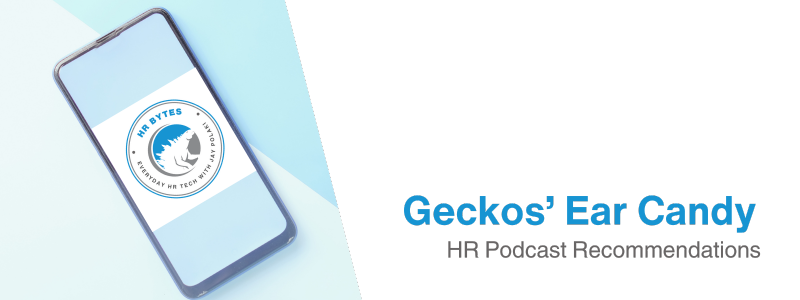
We are tuning in to the Honest HR Podcast this month with hosts Amber Clayton, Wendy Fong, and Monique Akanbi. The podcast covers a broad spectrum of work-related topics, connecting listeners to new ideas and individuals in the world of work. Hosted by SHRM professionals, it delves into various aspects of HR, providing valuable insights and discussions.
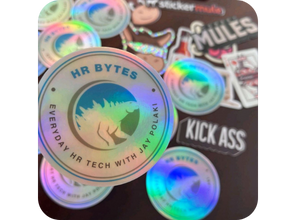
HR Bytes
And, of course, we are excited for our very own HR Bytes, where we bring stories of HR trailblazers who are redefining HR with a global mindset and local impact.
Listen NowCurious about the future of HR tech?
Dive into the future with our HR Bytes Newsletter, your source for cutting-edge HR Tech insights
We’re thrilled to share our HR Bytes Sticker!
Be part of the HR Bytes community. Share your thoughts and claim your sticker here: https://tinyurl.com/3a4ecx62 Stay tuned, stay inspired!

Geckos’ Top Tails
HR Bookshelf Selections
We found some new reads to stay ahead of HR and the future of work trends! What is on your HR bookshelf this month?

The Algorithm: How AI Decides Who Gets Hired, Monitored, Promoted, and Fired and Why We Need to Fight Back Now by Hilke Schellmann (January 2024)

Immortal HR: The Death and Resurrection of Ms. H. (Harriet) R. (Rose) Job by Marc S. Miller (January 2024)

All-in On AI: How Smart Companies Win Big with Artificial Intelligence by Nitin Mittal, Thomas H. Davenport (January 2023)

HR Data Doodles: Season 2 - Back to Work by David Turetsky (October 2023)

HR Like a Boss: Your Guide to Amazingly Awesome HR by John Bernatovicz (October 2023)

Excellence in People Analytics: How to Use Workforce Data to Create Business Value by David Green (July 2021)

HR Bytes Reminders
Mark Your Dates with HR Excellence

Hey HR Professionals, don't forget to sail smoothly into the new year with a compliant ship. Check your compliance list for a successful and cozy January!
- Review and update any HR-related documentation, such as handbooks or policies, for changes in the new year.
- Jan 1st: New Year's Day (Federal Holiday)
- Update employee benefits information and enrolment options for the new year.
- Jan 31st: Deadline to submit Form 1099-NEC to the IRS and recipients for non-employee compensation payments exceeding $600 in the previous year.
- Jan 15th: Due date to pay and report federal payroll taxes for the previous quarter (Form 941).
- For other forms like W-2, 1099-MISC, and others, the due date for filing with the IRS is typically the end of February, but it can be extended to the end of March if filed electronically.
- Jan 31st: Deadline to distribute W-2 forms to employees for the previous year.
- The due date for Form 1096 (Annual Summary and Transmittal of U.S. Information Returns) is generally the same as the individual forms it accompanies.

